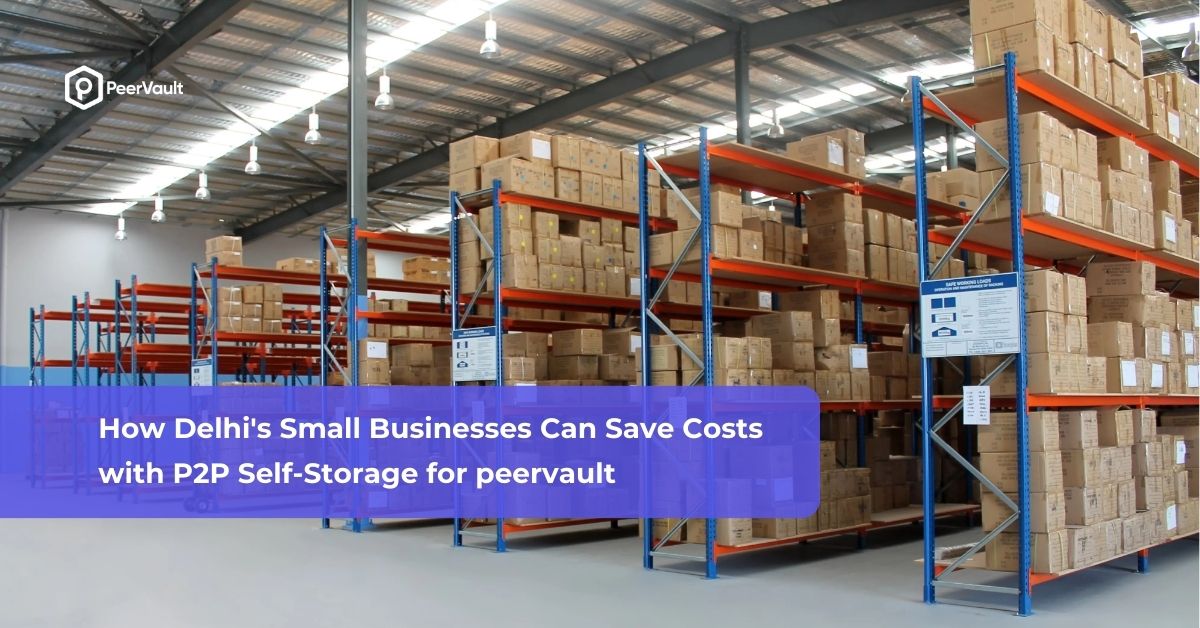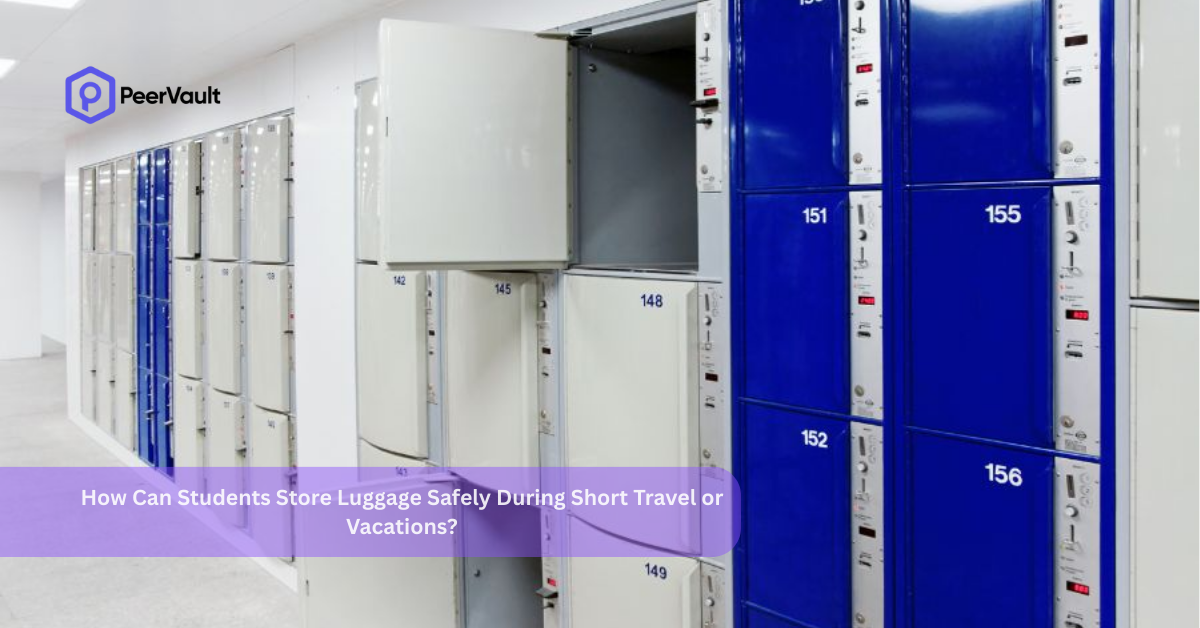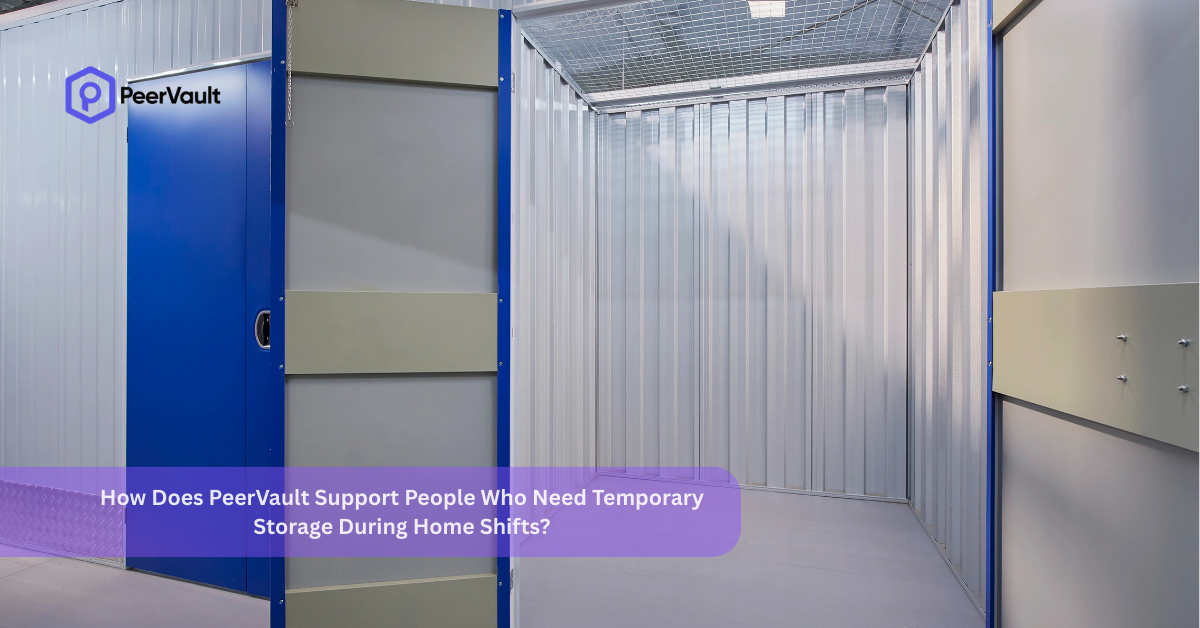How Delhi’s Small Businesses Can Save Costs with P2P Self-Storage

Inventory management is a common issue among small businesses, mainly due to the limited capacities that most of them can reach. With convenience, flexibility, and cost-effectiveness, self-storage facilities have become an essential resource for small business owners. Small businesses in Delhi can save money by using peer-to-peer self-storage to decrease inventory management and operational costs.
How Small Businesses in Delhi Can Save Costs
Reduction in Maintenance and Overhead Costs
You either own or rent additional space, and the costs of repairs, cleaning, insurance, and utilities can accumulate quickly. Self-storage, therefore, eliminates these costs. Since the storage provider handles facility maintenance, you must only focus on signing in and utilizing the space with https://peervault.in/.
Cost-Effective Inventory Storage
Renting or leasing a more prominent commercial location can be expensive for small firms, mainly if the facility is not thoroughly utilized. Self-storage is a cost-effective option implemented in https://peervault.in/, allowing company owners to rent only the required space without conventional leases’ long-term financial obligations. Because most self-storage facilities are available in various sizes, company owners may choose a unit that matches their present inventory and then upgrade or downsize as their requirements change. This flexibility allows a small business to store its inventory while saving money on overhead expenditures. Furthermore, most storage facilities, such as https://peervault.in/, provide monthly leases, so there are no long-term commitments. This flexibility is perfect for firms that encounter seasonal swings in stock since it allows them to alter their storage requirements accordingly. Small firms that keep their expenses low can devote more resources to expansion and other operational needs.
Flexible Storage Solutions for Seasonal Needs
Self-storage is an economical method of keeping extra equipment or inventory during busy times if your company faces seasonal swings. Retail companies, for example, might avoid the need for more significant year-round facilities by storing promotional items, excess inventory, and seasonal decorations in a storage unit on https://peervault.in/. This adaptability guarantees you only pay for the required storage at the appropriate time.
Freeing Up Office Space
Most smaller enterprises begin by storing products in an office or retail location, but as the firm expands, this may lead to tight workplaces and decreased efficiency. Self-storage facilities assist businesses in reclaiming precious office or retail space, ensuring staff work in a productive and clutter-free atmosphere while saving costs.
With products housed safely off-site, company owners can create a more professional and friendlier environment for their consumers while saving associated costs. Furthermore, an ordered workspace boosts overall efficiency since staff can focus on their job without being distracted by boxes and superfluous inventory. Whether making a place for extra workstations or offering a better shopping experience for consumers, using self-storage may significantly improve a company’s productivity.
Scalability for Growing Businesses
As a firm grows, so does the demand for more storage to handle expanding inventory. This might occur because of increasing client demand, product diversity, or operational expansion. Self-storage is a flexible, scalable option that allows businesses to increase storage capacity without the inconvenience and expense of relocating to a new commercial facility. Instead of committing to a larger facility with a more significant cost, company owners may quickly upgrade to a larger storage space or hire numerous facilities to organize various types of inventory.
This scalability is especially beneficial for organizations that undergo quick expansion or seasonal swings in inventory. It allows flexibility to change storage requirements on demand, ensuring that stock is effectively handled and readily available. Furthermore, many storage facilities provide easy access, allowing firms to rapidly collect, store, or reorganize goods as needed, increasing operational efficiency while controlling expenses.
Security for Stock and Equipment
Self-storage buildings have been designed on a secure basis, to levels of protection which other small operations might not have the money to afford on their premises. Closed-circuit tv, secure access credentials, and an on-site worker have merchandise safe from both crime and damage. Self-storage is also very important for high-value goods or sensitive goods due to this added protection. Plenty of storage facilities present, in addition, climate controlled rooms; very crucial for sensitive items such as electronics, art, and food supplies. Self-storage allows small companies to store their products and machines optimally, reducing the risk of stretches and losses.
Streamlined Seasonal Stock Management
Many firms’ inventory demands fluctuate owing to seasonal changes. Retailers, for instance, frequently see an increase in demand over the Christmas season and may require more storage space to accommodate excess inventory. Similarly, fashion, agriculture, and event-organizing firms may need to stock up on seasonal supplies during certain seasons. Self-storage is a perfect solution for managing these transitory stock increases, allowing firms to keep surplus goods during busy periods and scale back when things settle down.
This versatility is handy for small organizations that do not have the means or room to increase their permanent storage. Renting a self-storage space during high seasons enables businesses to easily handle more inventory without overflowing their principal site. Businesses that keep seasonal merchandise off-site may maintain an orderly and clutter-free workplace, which boosts productivity and customer service.
Once the holiday rush is past, firms may easily downgrade to a smaller storage facility or terminate operations entirely, lowering operational expenses. This adaptable strategy guarantees that firms are always ready for peak seasons without incurring year-round storage costs, making self-storage a cost-effective alternative for seasonal inventory management.
Easy Access and Inventory Control
Among the most significant benefits of using self-storage for organizations is ease of access. Many storage facilities have 24-hour access, allowing company owners to collect or keep merchandise whenever needed, including after regular office hours. This flexibility is critical for firms that work on tight deadlines or have unanticipated inventory requirements. Whether you need to refill after hours or prepare for an early morning shipment, having 24-hour access to your inventory may make all the difference in keeping operations running smoothly.
Self-storage units not only provide simple access but also improve inventory control. Businesses that use a separate storage area may better manage their products, making it easier to check inventory levels and ensure nothing is forgotten. Many storage facilities provide shelving and organizational tools to assist firms in better categorizing and managing their inventory. This lowers the possibility of overordering, supply shortages, or misplacing things, which can result in costly blunders.
A well-organized inventory system saves time and increases productivity, as staff can easily find what they need. It also guarantees that firms always have the proper items, preventing supply chain interruptions and maintaining consumer satisfaction.
Also check : https://peervault.in/state/delhi/
Conclusion
Regarding inventory management, self-storage provides several advantages to small enterprises. Self-storage offers the flexibility that expanding businesses want, from low-cost storage options to increased security and scalability. Self-storage is a realistic choice for small companies trying to simplify operations and remain competitive today. It frees up office space, improves inventory control, and provides safe, expandable solutions.
Whether you’re dealing with seasonal stock, increasing product lines, or simply searching for a safe location to store inventory, self-storage may help small companies manage their inventory more efficiently and affordably. It may also significantly improve a local business’s bottom line by being more affordable than standard storage and huge offices. Businesses give up valuable office space and cut overhead costs such as rent and electricity bills, allowing them to spend the savings in crucial areas that may promote development.
Savings from self-storage may be reinvested in activities that will generate business growth, such as boosting marketing efforts, investing in new technology, or hiring more employees. Furthermore, the inherent flexibility of self-storage-whether modifying unit size or scaling storage up or down- allows organizations to swiftly respond to any change in demands without being tied down or spending a fortune on long-term contracts. It implies more financial independence and better agility in seizing opportunities. This is critical for improving a business’s overall economic health.
Popular Posts






